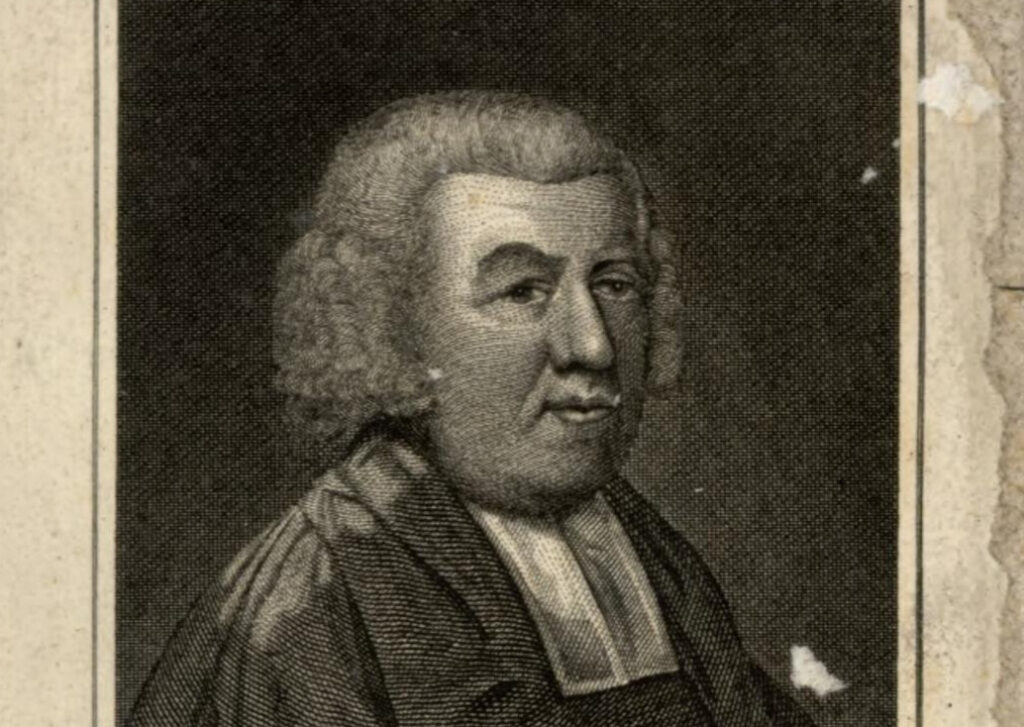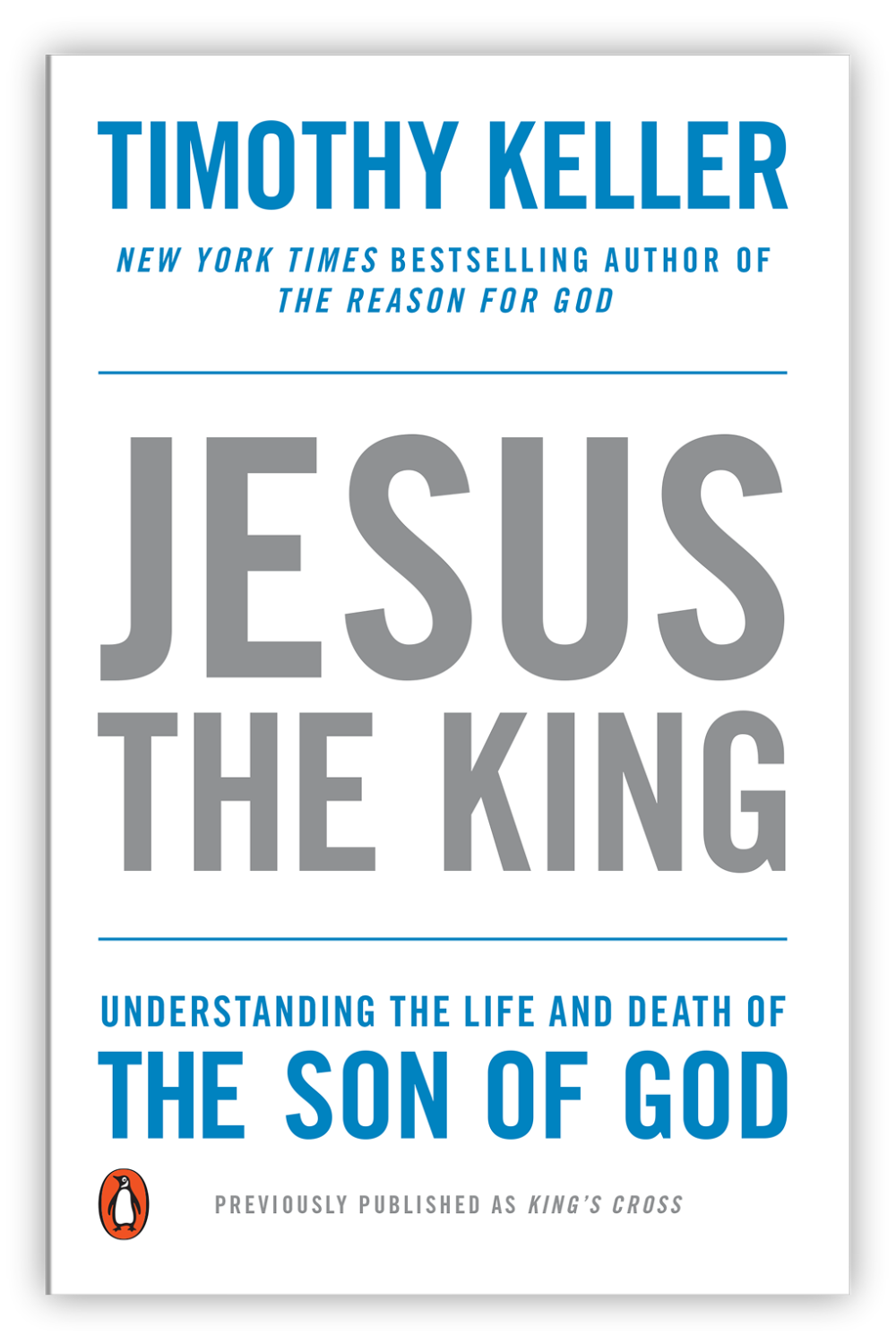This is an article originally written in three parts for the Redeemer Report in 2013 — “Change and Grace: Parts 1-3.” In it, Dr. Keller looks at the treasure of wisdom found in the letters of John Newton — specifically looking at how we can fall into the trap of not recognizing subtle areas of sin in our lives and how damaging that can be to a person’s witness. He also shows how grace is the key to living in the way God calls us.
For decades Kathy and I have profited immensely from the pastoral wisdom of the converted slave trader John Newton. As an 18th century Anglican minister, Newton was a good preacher, but it was as a pastor, counselor, and advisor that he excelled. His pastoral letters are a treasure chest. In one of his letters (entitled “Some Blemishes on Christian Character”) Newton points out that while most Christians succeed in avoiding the more grossly obvious sins, many do not actually experience much in the way of actual spiritual growth.

Newton lays out very convicting and specific examples of the kinds of Christian people who coast on their strengths but do nothing about their weaknesses—and so rob themselves and others of joy and rob God of his glory. These blemishes are often seen by their bearers as mere “foibles.” Newton says they “may not seem to violate any express command of Scripture” and yet, they are “properly sinful” because they are the opposite of the fruit of the Spirit that believers are supposed to exhibit.
These “small faults” mean that large swaths of the Christian population have little influence on others for Christ. This is true because while our faults always seem small to us due to the natural self-justification of the heart, you can be sure they don’t look so small to others.
Over the years I’ve gone back again and again to this list to use in my own personal self-examination (not as a way to find fault with others!). As I have done so, I’ve seen things in myself that I’ve sought to stamp out with God’s grace. And as I’ve worked through the list, I’ve expanded it—often breaking some of his larger categories into smaller ones in order to be more incisive.
Here I’ll share my expanded list—based heavily on Newton’s original one. Since Newton gave each case study a slightly humorous Latin name, I’ve done the same.
A list of sinful “small fault” areas that run contrary to the fruit of the Spirit
- Austerus is a solid and disciplined Christian, but abrasive, critical and ungenerous in dealing with people, temperamental, seldom giving compliments and praise, and almost never gentle.
- Infitialis is a person of careful and deliberate character, but habitually cynical, negative, and pessimistic, always discouraging (“that will never work”), unsupportive and vaguely unhappy.
- Pulsusis passionate, yes, but also impulsive and impatient, not thinking things out, speaking too soon, always very quick to complain and lodge a protest, often needs to apologize for rash statements.
- Querulus is a person of strong convictions, but known to be very opinionated, a poor listener, argumentative, not very teachable, and very slow to admit they were wrong.
- Subjectio is a resourceful and ambitious person, but also someone who often shades the truth, puts spin on things (close to misrepresentation), is very partisan, self-promoting, and turf conscious.
- Potestas gets things done, but needs to control every situation, has trouble sharing power, has a need to do everything themselves, and is very suspicious and mistrustful of others.
- Fragilis is friendly and seeks friends, but constantly gets hurt feelings, easily feels slighted and put down, is often offended and upset by real and imagined criticism by others.
- Curiosus is very sociable, but enjoys knowing negative things about people, finds ways of passing the news on, may divulge confidences, and enjoys confronting too much.
- Volatilis is very kind-hearted and eager to help, but simply not reliable—isn’t punctual, doesn’t follow through on promises, is always over-extended, and as a result may do shoddy work.
Look at these and ask which one or two most describe you. Have the courage to ask someone else who knows you well to evaluate you, too.
Why is it that so many Christians live like this?
Our natural virtues, which come from inborn temperament and family nurture—such as our talents, aptitudes, and strengths—are good things. But they each have a ‘dark side.’ People with prophetic gifts—great directness, often good at public speaking or writing—can have problems listening to others and taking advice. People with priestly gifts—sensitivity, often good at listening, giving counsel, showing mercy—often can be too concerned to make people happy. They may be cowardly, or overly sensitive themselves to criticism. A person who is very generous may also be undisciplined and irresponsible in financial matters. Thus his generosity is really a facet of his too-impulsive character.
One of the reasons that the virtues of gifts and temperament have a corresponding ‘dark side’ is that our gifts and natural temperament are bound up with the idols that dominate any person whose heart is not filled with the gospel of grace. Without a thorough knowledge of the gospel, we look to good things—human approval and relationships, the exercise of power and accomplishment, the control of our environment and self-discipline, the enjoyment of comfort, privacy, and pleasure—and make them into pseudo-salvations. So the person who makes an idol out of human approval may be a sensitive artist and the one who makes an idol out of power might be a courageous leader. But gifts and temperament in the service of idols—and this is our normal state—always are a mixed blessing. They have a good side—they produce virtuous behavior—but they lead the person into a corresponding sin or vice as well.
The final result of all this is that people cannot see their sins, because they’re looking only at their virtues. For example, someone may say: “I’m not abrasive, I just speak very directly.” It is true that a direct-speaking person may do good, because direct, blunt comments are sometimes needed. But overall the abrasiveness is ineffective and the person’s boldness and confidence comes to some degree from pride and a lack of love. And for this reason, many (or perhaps most) Christians do not work on the supernatural graces of the Spirit that are not natural to us, and that mitigate or eliminate the dark side—the besetting sins—of our nature.
How can we be shaken out of our lethargy and awakened to our need to grow?
Here are some principles that I have gleaned from Newton’s letters over the years.

1. Know that your worst character flaws are the ones you can see the least.
By definition the sins to which you are most blind, that you make the most excuses for, and that you usually minimize are the ones that most have you in their grip. As we said before, one way we hide our blemishes is that we look at places where our natural temperament resembles spiritual fruit. For example, a natural aptitude for control and self-discipline can be read as ‘faithfulness’, and a natural desire for personal approval could look like ‘gentleness’ or ‘love.’ Or we mistake a bubbly, sanguine temperament for joy, and a laid-back, phlegmatic temperament for peace. We give ourselves spiritual credit for these things, when actually we aren’t growing spiritually at all. The lack of other fruit shows that real supernatural character change is not happening.
2. Remember that you can’t learn about your biggest flaws just by being told—you must be shown.
There are two ways we come to see our sins and flaws more clearly. One way is that we are shown them by troubles and trials in life. Suffering is ‘God’s gymnasium’—it reveals our spiritual weaknesses just as a workout reveals physical weaknesses.
Secondly, we learn by Christian role models. Sometimes the best conviction comes when you are brought near a person who is living as you should be living. You may not think of yourself as impatient, or abrasive, or over-sensitive until you are brought into close proximity to someone much more patient, irenic, and content than you. What this means is that we should make use of these opportunities to grow. They are painful—even being near very holy people can be uncomfortable! But it is at such times, when we most feel the need for grace, that we find God’s grace most desirable.
3. Be willing to listen to correction and critique from others.
We just said that no one ever learned about his or her sins by being told. We have too many layers of self-justification to grow without hard knocks. But in addition, as a complement, we need critique and accountability from brothers and sisters.
There are at least two kinds. First, you can create your own Hebrews 3:13 community. Hebrews 3:13 says we are to “exhort one another daily” so we are not “hardened by the deceptiveness of our sin.” Take some other believers that you trust and give them “a hunting license” to talk to you about where you need to grow.
Secondly, don’t forget the “Balaam’s ass” principle. You must learn how to profit from criticism even given by people who are badly motivated, or who you don’t respect. Even if only 20% of what they say is true, it may be God speaking to you.
How do we actually make changes once we see where we need to change?
I have noticed over the years that some ministries, in their effort to stress holiness of life, do not put a great deal of emphasis on God’s gracious acceptance of us despite our sins. And other ministries, in their effort to avoid legalism and rejoice in grace, are reluctant to call people to a close, exacting self-examination and deep repentance. But Newton is remarkable in giving equal weight to self-examination and grace.
I said earlier that Newton gives us some deeply convicting ways to examine our hearts. Christians, he says, put too little time and effort into examining themselves and seeking to grow in holiness, in the fruit of the Spirit. But does such close examination mean that we are doomed to always feel inadequate, ashamed, and guilty? No, because Newton sees a deeper knowledge of sin leading to a richer rejoicing in grace. No one was better than Newton at urging people to ‘use the gospel of grace’ on the heart in order to change it. Here are two things I’ve learned from Newton over the years on how to do this.
1. Let the radical, costly grace of God in Christ on the cross penetrate our hearts.
People often try to fill their hearts with the danger of what they are doing. You can tell yourself “if I keep doing this it will cause problems for me.” That may be true and could be good ‘smelling salts’ to get you to recognize your problem. But if that is all you say to your heart, it (as it were) bends the metal of your heart, but doesn’t really soften and permanently reshape it. The motivation is ultimately selfish and it only brings short-term change.
We need to go deeper to the only lasting way to change our hearts—take them to the radical, costly grace of God in Christ on the cross. You must show your heart the infinite depths to which he went so that you would be free from sin and its condemnation. This fills you with a sense not just of the danger or sin, but also of its grievousness. Think about how ungrateful it is to continue in sin. Think of how your sin is not just against God’s law, but also against his heart. Melt your heart with the knowledge of what he’s done for you. Tremble before the knowledge of what he is worth—he is worthy of all glory.
2. Too often we look for things besides God to satisfy and fulfill us.
A second powerful thought from Newton is this: we sin not simply out of a rebellious desire to be our own masters, but also because we are looking to things besides God to satisfy and fulfill us. While Newton was good at pointing out the danger of having too low or light a view of one’s sin, he was also good at pointing out the opposite problem—too light a grasp of what Jesus has done for us. Newton wrote to a man who was discouraged:
You say, you find it hard to believe it [is] compatible with the divine purity to embrace or employ such a monster as yourself. [In thinking this, you] express not only a low opinion of yourself, which is right, but too low an opinion of the person, work, and promises of the Redeemer; which is certainly wrong….
– “Letter XI, to the Rev Mr S”, Works of John Newton, Vol. 6, 1985, pp. 185-187.
Satan transforms himself into an angel of light. He sometimes offers to teach us humility; but though I wish to be humble, I desire not to learn in this school. His premises perhaps are true, that we are vile, wretched creatures—but he then draws abominable conclusions from them; and would teach us that, therefore, we ought to question either the power, or the willingness, or the faithfulness of Christ. Indeed, though our complaints are good, so far as they spring from a dislike of sin; yet, when we come to examine them closely, there is often so much self-will, self-righteousness, unbelief, pride, and impatience mingled with them, that they are little better than the worst evils we can complain of….
You have not, you cannot have, anything in the sight of God, but what you derive from the righteousness and atonement of Jesus. If you could keep him more constantly in view, you would be more comfortable. He would be more honored.…Let us pray that we may be enabled to follow the apostle’s, or rather the Lord’s command by him, Rejoice in the Lord always, and again I say, Rejoice. We have little to rejoice in ourselves, but we have right and reason to rejoice in him.
If we are going to grow in grace, we must stay aware of being both sinners and loved children in Christ. We need a high and due sense of our sin before God and a deep and profound sense of our union with and acceptance in Christ.
In the end, it’s the joy and wonder of the gospel that will change you permanently.




